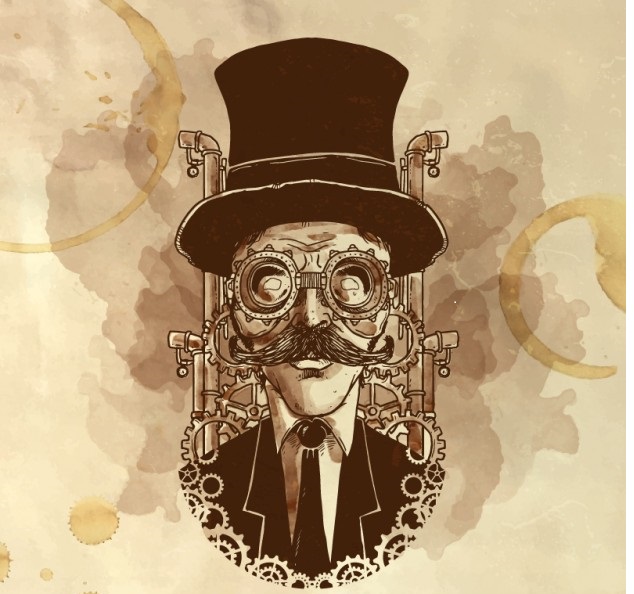Often, debates have centered around - how good and happy the past was, how bad the present is, and how worst the future is going to be. We may call this the “golden past syndrome" (GP syndrome). There is no harm in remembering the past as good according to one’s own experience, but the problem starts when this is done as a precursor to the condemnation of the present and future times. This condemnation is contagious. The elder generation passes this GP syndrome to the current generation, who too start perceiving a gloomy picture of the current state and the future. Some criticisms about the present times may be valid but most of them are not.
We are the luckiest generation. We have experienced more peace, luxury, medical facilities, freedom, time, vacation, education, equality than any other generation in history. In spite of all these achievements, we are so attracted to the pessimists. The hollow claims made are: the world is going through its worst time ever, people in the old days were happier and healthier, society is fast degrading, no group loyalties, values are eroding, accidents and poverty are on the rise, natural disasters are more and so on. These allegations are primarily based on prejudice and ignorance. Read on...
We need to remove our tinted glasses of skepticism towards the current times and generation. We should free ourselves from being nostalgic about the past or else we risk of being forever locked in yearning for our past which cannot be reclaimed. We have been able to surmount acute and numerous problems faced by humanity to date. We should congratulate the earlier generation and ourselves for this successful march. There was never a better time to be alive for a common man.
This GP syndrome is not new. An Assyrian tablet was written around 2800 BCE (4800 years ago) says: “The Earth is degenerating today. Bribery and corruption abound. Children no longer obey their parents, every man wants to write a book, and it is evident that the end of the world is fast approaching”.
Why each successive elder generation is nostalgic of the past and despising of the present, is a matter of psychological research. Some reasons may be:
The media sells on breaking news which “has” to be negative for increasing the TRP. News of an accident is more appealing than a child playing in a garden. The media delivers what we want to see and hear.
The priests and politicians have vested interest in painting a fearful picture of the world in its present and future form. They want to propose themselves as saviors.
Charity cannot be raised without saying that things are bad, very bad.
We see the present ‘zoomed in’ with its flaws in detail, whereas we see the past ‘zoomed out’, of which we remember only the highlights.
For some evolutionary benefits, we are better at remembering joys of the past than its pains.
The higher middle class and elite’s of the past miss the power and clout they enjoyed erstwhile. The only solace may be remembering the past.
When we are not able to adapt to the present we conclude that the past was good.
Debate condemning the present is non-controversial.
Ignorance of facts and data.
From among the numerous myths doing the rounds, let us take a re-look at a couple of 'hit' myths, which we all fall prey to:
Myth: ‘The healthy old men myth’: A claim that people of the earlier generations were physically more fit and had a better and healthy life span.
Fact: In the past, the medical and healthcare facilities were not available as they are today. Thus, the child mortality rate (CMR = death of children under age 5) was much higher. The data shows that 70 years back the CMR was 10 times more than today. What this means is - Seventy years back, only those who were genetically strong survived, and some are alive today. The genetically weak among them were killed by some small or big disease. Today, because of better healthcare facilities children who are weak have 10 times better chance of surviving. We will thus, have a mix of genetically strong and weak people from the current generation. That’s indeed an achievement of the medical sciences.
Myth: ‘The loss of values myth’: Debates have almost always revolved around the loss of values and declining moral.
Fact: With developments in the field of education and technology society is bound to change. None of us talk about the positive new value sets which are emerging. Such confusion is typical in the period of revolutionary changes we are experiencing. If we perceive the changing values as loss of values, we shall be hopelessly locked in the past. In a lighter vein - It is paradoxical of the earlier generation to talk about the decline in values because it is they who have nurtured and brought up the current generation. If they blame the current generation, the earlier generations must equally share the blame. But fortunately, values are not on a decline. They are changing, that’s it. This will be obvious as you read further.
Though it may not be evident from the headlines in the media, the fact is, we live in a better and peaceful world that has ever existed. If only we can pay some attention to the positive aspects we shall be surprised to discover that not only things are better than they were 50 or 100 years back, but that this is the best time ever to be alive. Humanity was never in so much peace and happiness.
As far as the objective parameters are concerned there is not much argument over the fact that the present is better. We are improving on almost all these objective parameters. Thanks to the development in the field of science, technology, and communication. Of many, a few indicators are:
The per capita income of India rose from Rs. 7114 in the year 1950 to Rs. 39143 in the year 2013 (adjusted for inflation)
The literacy rate increased from 35% at independence to 65% today
The expected life span has increased from 37 years in 1950 to 68 years in 2013
Child Mortality Rate (for age under 5) has reduced in the last fifty years from 230 per thousand lives in 1960 to 56 per thousand lives in 2010
Poverty in India has gone down from 54% of the population in 1972 to 22% of the population in 2013
Since the 1920s, the global annual death rate from weather-related natural disasters has declined by a staggering 99 percent. For example Famines in India resulted in more than 60 million deaths over the course of the 18th, 19th, and early 20th centuries. Post-independence India faced a number of threats of severe famines in 1967, 1973, 1979 and 1987 in Bihar, Maharashtra, West Bengal, and Gujarat respectively. The maximum deaths post-independence was during 1967 Bihar Famine and that was 2353.
The real debate is about the subjective parameters like values, happiness etc.:
The current times have seen an unprecedented rise in involvement of people in social work, more people than ever are volunteering, billionaires donating a fortune for philanthropic activities are on a rise, donations for humanistic works are flowing in generously, gender equality is on the fast lane, conflicts among nations are being negotiated peacefully, awareness of corporate social responsibility is increasing.
The happiness index for India was 3.4 in 1962 which has risen to 5.5 in 2009 a more than 50% increase in the past 50 years.
There has been no global war in the past 50 years. Wars and War deaths in the past 30 years are the lowest throughout human history. The world was never so much peaceful.
The feminine values of co-operation, care, compromise, and consensus have trumped and are increasingly followed by nations and corporates throughout the world. No wonder we will see more female CEOs in the decades to come. The whole world is becoming a softer and safer place to live in.
The caste and class divides are blurring.
On a micro level, the attitude of the common man is changing towards being more humanistic. It may not be apparent from the pathetic daily soaps on television but, the Indian “Bahu” (daughter-in-law) is better placed than she was 50 years back. Children are interacting more freely with their parents. Attitude towards a girl child is changing in a positive direction. Ask your mom about all this.
A person doing menial work is better respected and acknowledged today. For example: House maid has better facilities and respect today than they had 50 years back.
Opportunities for progress are no more confined to the rich. It was never so easy to be successful. Success stories of ‘rags to riches’ are being written every day. Narayan Murthy, Shiv Nadar, Bill Gates are some star examples. There are numerous others. This revolution has been brought about by computers, the internet, and communication. Technology itself is neutral. How we use it is up to us.
Individuals are slowly moving from the acquisition of ‘material things only’ to ‘living a fulfilled life’. They are earning and spending more, than just hoarding for the generations to come.
The world is becoming better with better value and belief sets emerging, based not on superstition and dogma but on humanistic values.
Today, freedom is on the rise. The Russian empire fell, the Chinese have liberalized, South American military rules have collapsed, in Arab the despots are toppling. Soon only a few tyrants will be left. This has never happened so fast in human history.
The media is free and has taken full advantage of its freedom. The common man was intoxicated for thousands of years by preachers, kings and egomaniac leaders. Today a common person is more aware and has woken up from his slumber, thanks to the information flow and free debate. Suddenly the Baba’s have become non-miraculous, thanks to cameras and other recording instruments. No longer is it possible to fool people as was done in the past. Open debate and a free flow of information are the best vaccines known against fanaticism. We are well on track.
I believe that we still have much to be desired and done. But the fact is that the present is better than the past. There may be occasional hiccups but we should be assured that humanity is on its course towards more freedom and a better world. Nothing can stop the march.
The past was about selective 'individual enlightenment', today we are on a course of 'collective enlightenment'.
Love,
Mahendra Chaturmutha




